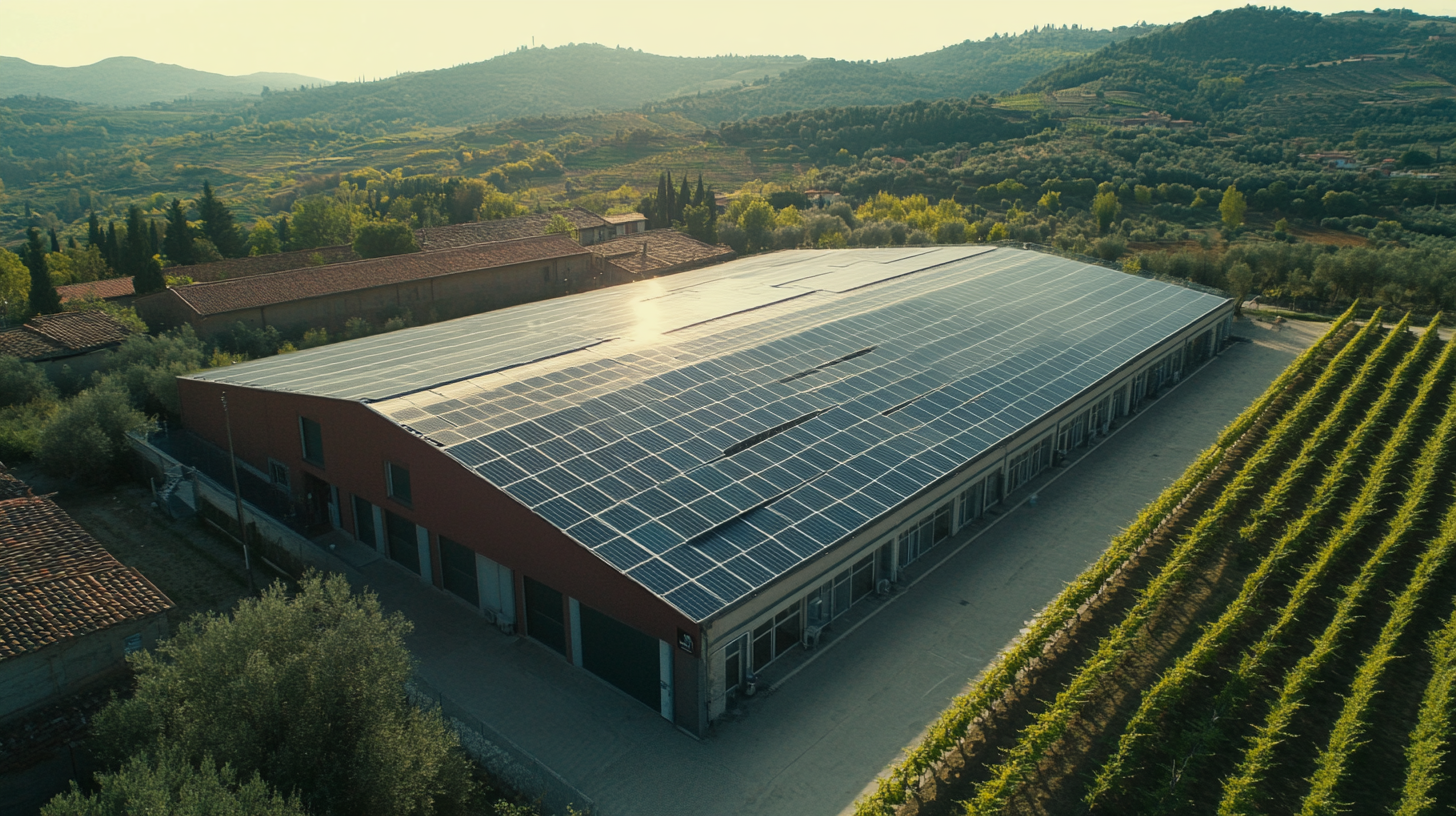Advantages of Utilizing Solar Energy Solutions for Sustainable Procurement
In an era where sustainability is becoming increasingly critical, businesses are actively seeking innovative solutions to enhance their procurement processes. One of the most promising strategies involves the integration of solar energy products into their operations. By harnessing the power of the sun, organizations can not only reduce their carbon footprint but also achieve significant cost savings. This shift towards green energy not only aligns with corporate social responsibility goals but also appeals to a growing consumer base that values environmentally friendly practices.
Moreover, solar energy solutions present an opportunity for companies to future-proof their supply chains. As global energy demands rise and traditional energy sources become more volatile, investing in renewable energy can provide stability and resilience. By adopting solar energy products, businesses position themselves at the forefront of the sustainability movement, showcasing their commitment to a greener future while benefitting from the long-term financial advantages of renewable energy. In this blog, we will explore the various advantages of utilizing solar energy solutions for sustainable procurement and how they can transform the corporate landscape.

Understanding Solar Energy Solutions in Sustainable Procurement
Solar energy solutions are increasingly recognized as a vital component of sustainable procurement strategies. By harnessing the power of the sun, businesses can significantly reduce their carbon footprint and reliance on fossil fuels. This shift not only contributes to environmental goals but also enhances a company's reputation among consumers increasingly concerned about sustainability. Implementing solar energy technologies can also lead to substantial cost savings over time. While the initial investment can be a barrier, the long-term benefits of lower energy bills and potential government incentives can make solar a financially viable option. Moreover, as solar technology continues to advance, the efficiency and affordability of solar panels are improving, making them an appealing choice for companies looking to integrate renewable energy into their operations. Beyond financial implications, utilizing solar energy solutions encourages innovation and can drive a competitive advantage. By adopting sustainable practices, organizations can differentiate themselves in the market, attract environmentally conscious consumers, and foster a culture of sustainability within their workforce. This alignment with modern values not only supports a greener planet but also positions businesses as leaders in responsible procurement practices.

Key Benefits of Integrating Solar Energy into Supply Chains
Integrating solar energy solutions into supply chains offers numerous key benefits that significantly advance sustainability efforts. As businesses face increasing pressure to reduce their carbon footprints and enhance operational efficiency, solar energy emerges as a transformative force. By harnessing solar power, companies can achieve energy independence, reduce reliance on non-renewable energy sources, and mitigate the risks associated with fluctuating fossil fuel prices.
One of the most compelling advantages of solar energy integration is its potential to enhance environmental sustainability. A recent study on renewable energy systems revealed that combining solar cells with other renewable sources like geothermal and wind power dramatically lowers environmental impact. This emphasizes the importance of diversifying energy sources within supply chains, creating a resilient and sustainable framework. Furthermore, the recent Budget 2025 allocation towards solar power indicates a broader governmental recognition of the essential role clean energy plays in driving economic growth and sustainability.
Moreover, the application of innovative technologies like blockchain in renewable energy markets can streamline solar energy integration into supply chains. With blockchain, companies can optimize energy distribution, improve transparency, and bolster supply chain resilience. As clean energy demand continues to soar, businesses must adapt by embracing these technologies and models that support sustainable procurement. This not only aligns with regulatory standards but also meets consumers' increasing demand for environmentally responsible practices, ensuring long-term viability in a rapidly evolving market.

Cost Efficiency: Long-term Savings from Solar Energy Investments
In recent years, the shift towards renewable energy sources has become a focal point in sustainable procurement strategies. Among these, solar energy stands out not only for its environmental benefits but also for its potential cost efficiency. Investing in solar energy solutions can lead to significant long-term savings, making it an attractive option for businesses aiming to optimize their operational expenses.
By harnessing solar energy, businesses can reduce their reliance on traditional energy suppliers, which often subject them to fluctuating market prices. Once the initial investment in solar panels and installation is made, the cost of maintaining and generating solar power is notably lower than that of fossil fuels. This transition can lead to predictable energy costs, allowing organizations to budget more effectively and allocate resources towards other strategic initiatives.
Moreover, many governments and local authorities offer incentives for solar energy adoption, such as tax credits or rebates. These financial benefits can offset the initial costs of solar solutions, enhancing overall cost efficiency. As businesses increasingly recognize these advantages, investing in solar energy not only supports their sustainability goals but also proves to be a financially savvy decision in the long run.

Environmental Impact: Reducing Carbon Footprint through Solar Solutions
Utilizing solar energy solutions has become increasingly vital in the quest for sustainable procurement, particularly in terms of reducing environmental impact. One of the most significant benefits of solar energy is its capacity to dramatically lower carbon footprints. By harnessing the power of the sun, businesses can decrease their reliance on fossil fuels, which are a major contributor to greenhouse gas emissions. Transitioning to solar energy not only minimizes emissions but also fosters a cleaner, healthier environment for future generations.
The implementation of solar solutions in procurement processes also encourages a ripple effect, influencing suppliers and partners to adopt more sustainable practices. As organizations champion solar energy, they set a precedent in their industries, prompting competitors to reconsider their energy sources and manufacturing methods. This collective shift toward renewable energy sources amplifies the carbon reduction potential on a larger scale, ultimately benefiting the planet.
Moreover, adopting solar energy directly supports corporate social responsibility (CSR) initiatives. Companies that prioritize sustainable practices often see improved brand reputation and customer loyalty, as consumers are increasingly inclined to support businesses that are environmentally conscious. As the demand for transparency in sustainability efforts grows, integrating solar solutions into procurement not only helps to significantly cut carbon emissions but also positions businesses as leaders in the evolving green economy.
Challenges and Considerations for Implementing Solar Energy in Procurement
The implementation of solar energy solutions in procurement processes presents not only considerable advantages but also distinct challenges that must be carefully addressed. One primary concern is the initial capital investment required for solar infrastructure. Many organizations may find it difficult to allocate sufficient upfront costs for solar panels and related technologies, despite the long-term savings they can provide. This financial barrier often leads to hesitation in adopting solar solutions, especially for smaller companies with limited budgets.
Another challenge lies in the integration of solar energy into existing procurement systems. This requires significant changes in operational procedures and the collaboration of various stakeholders. Companies must ensure that their procurement teams are educated about solar technologies and the benefits they offer. Additionally, they need to navigate the complexities of supplier relationships and the potential need for new partnerships with solar energy providers, all while maintaining current supply chain efficiencies.
Regulatory and environmental factors also pose hurdles. Different regions have distinct regulations regarding solar energy usage, and staying compliant can be a daunting task for procurement managers. Companies must invest time and resources to understand local laws and incentives, which can vary significantly from one location to another. Furthermore, organizations should conduct thorough assessments of their environmental impact and ensure that their solar initiatives align with broader sustainability goals, adding another layer of complexity to the procurement process.

